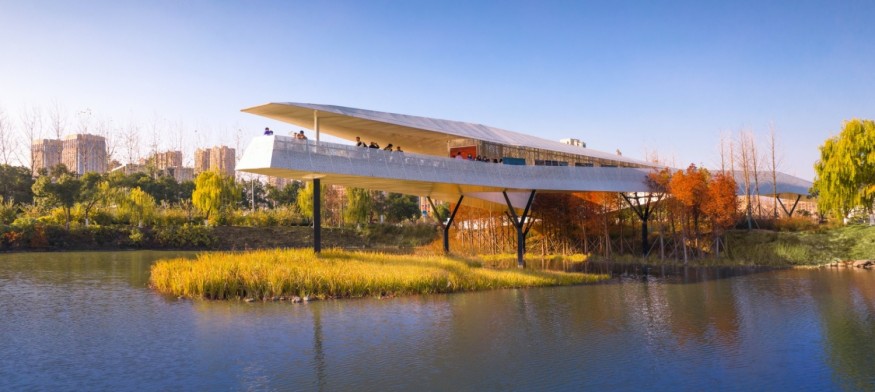Chinese Architect Explains Why ‘Sponge Cities’ May Be Key to Combating Urban Fooding
While architecturally built to be modern, cities worldwide are still struggling with more frequent floods due to climate change. Now, architects are looking to nature for new solutions.
From that, CNN reported that Chinese landscape architect Kongjian Yu and his firm, Turenscape, are pioneering a fresh approach called "sponge cities." This idea involves designing urban areas that can soak up and hold rainwater, reducing the strain on traditional drainage systems.
Sponge Cities for Urban Flooding
Instead of relying on expensive and rigid concrete infrastructure, Yu advocates for the integration of natural processes into urban planning.
Turenscape has designed over 10,000 sponge projects in more than 250 cities globally, transforming areas with porous soil, rain gardens, and wetlands.
"There's a misconception that building higher flood walls will protect cities from flooding," Yu explained. "We need to let nature take its course, allowing plants and natural systems to absorb and manage stormwater."

One notable example of Turenscape's work is the transformation of a polluted fish farm in Nanchang, China, into the 126-acre Fish Tail Park, a "floating forest" that helps regulate stormwater while providing wildlife habitat. Similarly, in Bangkok, Turenscape collaborated with local firms to convert a former tobacco factory site into Benjakitti Forest Park, a man-made wetland capable of absorbing 23 million gallons of stormwater.
Limitations of Sponge Cities
Despite the successes, Yu acknowledges that sponge cities have limitations. Heavy rains that exceed 200 millimeters can overwhelm these systems, as seen in Meizhou, Guangdong, which experienced severe flooding despite its sponge city status, according to CNBC.
Faith Chan, a professor at the University of Nottingham Ningbo China, explained: "We need a combination of sponge infrastructure and traditional hard engineering solutions for extreme weather."
Looking ahead, Yu and his team are more than resilient to implement sponge cities. "We are being slowed down by political and cultural processes, but the data shows that these solutions work,"
Related Article : 8 Exceptional Floating Homes Worldwide














